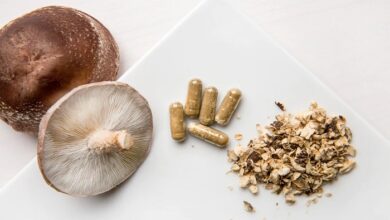Diet Coke: A Sugar-Free Soda with No Nutritional Value

Diet Coke is a popular carbonated beverage that claims to have zero calories, zero sugar, and zero fat. It is marketed as a healthier alternative to regular Coke, which contains 140 calories, 39 grams of sugar, and no fat per 12-ounce (355-mL) can. But is Diet Coke really good for you? What are the ingredients and nutrition facts of Diet Coke? And what are the potential benefits and risks of drinking Diet Coke? This article will answer these questions and more.
Ingredients and Nutrition Facts of Diet Coke
According to the official website of Coca-Cola, the ingredients of Diet Coke are: carbonated water, caramel color, aspartame, phosphoric acid, potassium benzoate (to protect taste), natural flavors, citric acid, and caffeine. It also contains the amino acid phenylalanine, which can be harmful for people with a rare genetic disorder called phenylketonuria (PKU).
A 12-ounce (355-mL) can of Diet Coke provides the following nutrition facts:
- Calories: 0
- Total fat: 0 grams
- Sodium: 40 milligrams
- Total carbohydrate: 0 grams
- Total sugars: 0 grams
- Protein: 0 grams
- Caffeine: 46 milligrams
As you can see, Diet Coke has no calories, no sugar, no fat, and no protein. It also has very little sodium. The only significant ingredient in Diet Coke is caffeine, which is a stimulant that can boost your energy, alertness, and mood. However, caffeine can also have negative effects, such as insomnia, anxiety, jitteriness, and dehydration.
Benefits of Diet Coke
The main benefit of Diet Coke is that it can help you reduce your sugar intake. Excessive sugar consumption can lead to various health problems, such as obesity, diabetes, heart disease, tooth decay, and inflammation. By switching from regular Coke to Diet Coke, you can save yourself 140 calories and 39 grams of sugar per can.
Another possible benefit of Diet Coke is that it can help you lose weight. Some studies have suggested that artificial sweeteners like aspartame can suppress your appetite and increase your metabolism. However, other studies have found no effect or even a negative effect of artificial sweeteners on weight loss. Therefore, the evidence on this topic is mixed and inconclusive.
Risks of Diet Coke
The main risk of Diet Coke is that it can have adverse effects on your health due to its artificial ingredients. Some of the potential risks are:
- Aspartame: Aspartame is a controversial artificial sweetener that has been linked to various health issues, such as headaches, migraines, seizures, depression, brain tumors, and cancer. However, the Food and Drug Administration (FDA) and other health authorities have deemed aspartame safe for human consumption at acceptable levels.
- Phosphoric acid: Phosphoric acid is a chemical additive that gives Diet Coke its tangy flavor and prevents mold growth. However, phosphoric acid can also erode your tooth enamel and increase your risk of osteoporosis by leaching calcium from your bones.
- Potassium benzoate: Potassium benzoate is a preservative that prevents bacterial growth in Diet Coke. However, potassium benzoate can also react with vitamin C and form benzene, a carcinogenic compound that can damage your DNA.
- Caramel color: Caramel color is a coloring agent that gives Diet Coke its brown color. However, caramel color can also contain 4-methylimidazole (4-MEI), a chemical that has been shown to cause cancer in animals.
Read more about: r-34
Conclusion
Diet Coke is a sugar-free soda that has no nutritional value. It may have some benefits for reducing sugar intake and possibly aiding weight loss. However, it may also have some risks for causing health problems due to its artificial ingredients. Therefore, it is advisable to limit your consumption of Diet Coke and opt for healthier beverages instead.
Read more about: forexfactoryhub




